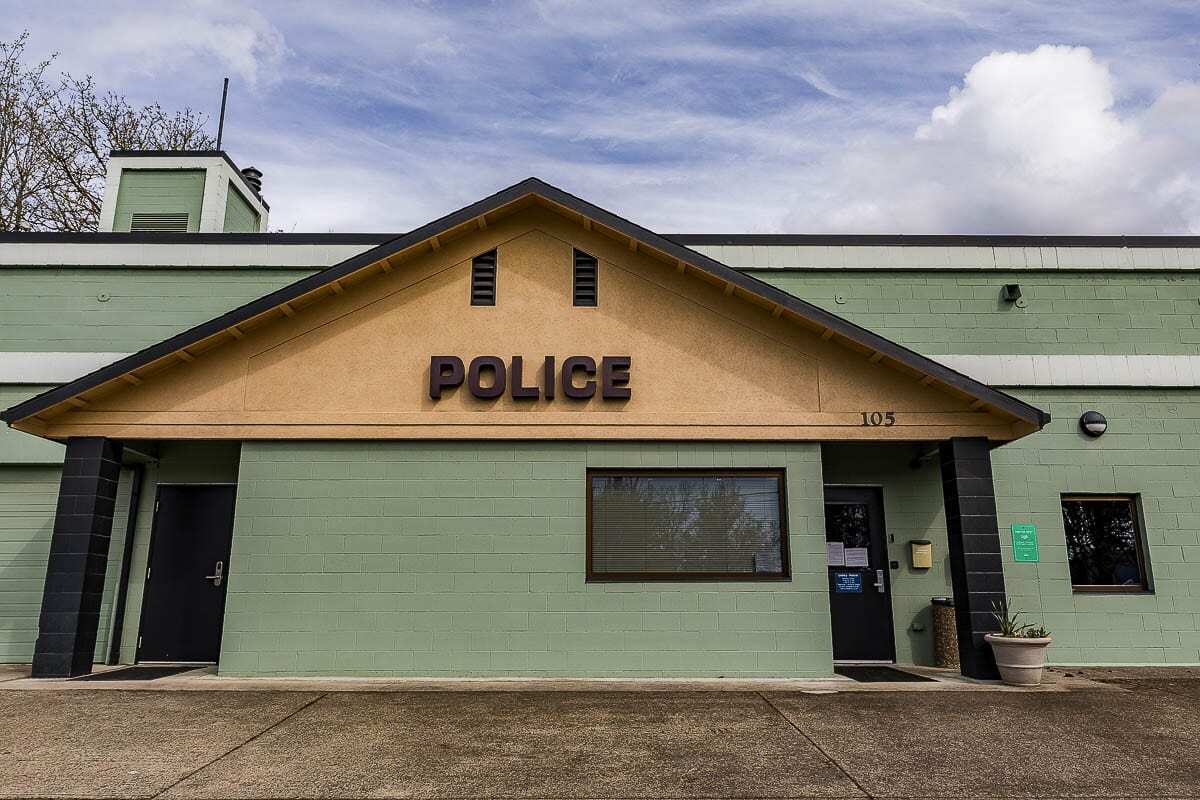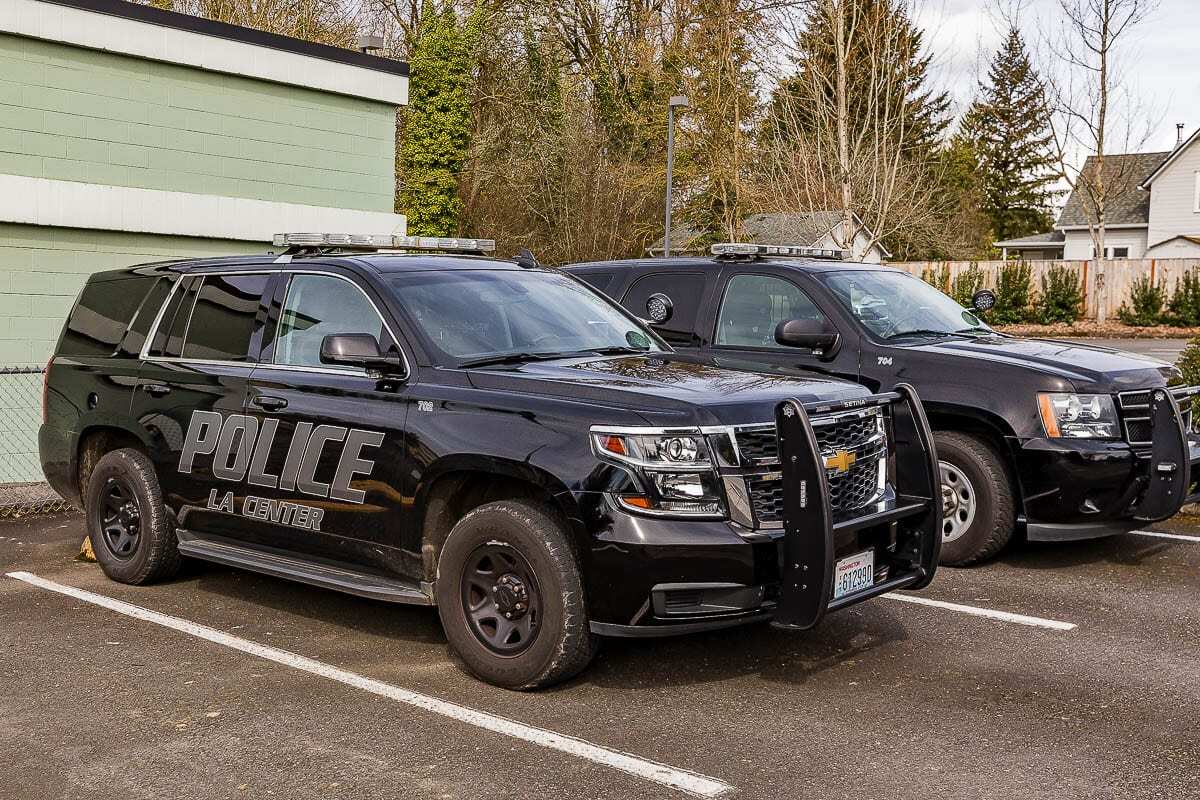Current chief and consultant conclude major upgrades needed or alternative law enforcement source
LA CENTER — After the completion of a report assessing various aspects of the La Center Police Department (LCPD), City Council members are in the process of deciding whether or not to keep the agency.

The assessment, which was authored by interim Police Chief Robert Richardson and former Battle Ground city manager and now Exigy consultant Jeff Swanson, details deficiencies the department has been experiencing and offers recommendations.
“The city of La Center needs to either go ‘all in’ on a full- service law enforcement department or consider alternatives to provide law enforcement services the City can afford,” the report reads. “Evidence of the City’s policing services needs is found in its calls for service. A policy question that must be addressed is: ‘Do La Center’s calls for service justify a fully- staffed department?’”
Council members have met to discuss the report twice, with the second time taking place earlier this week. Due to pandemic precautions, the normal procedure of a one-day, in-person retreat has been broken up into several two-hour virtual meetings.
While the councilors have not yet made a decision on whether to upgrade LCPD, or dissolve it and contract with an agency such as the Clark County Sheriff’s Office (CCSO), they have begun the process of looking at all options and variables to make an informed decision, according to La Center Mayor Greg Thornton.
“I think the consensus at the end of that [last] meeting … is that the City Council pretty much advanced the idea that we need to look at other alternatives for police services in La Center, to include possibly contracting out with another agency,” Thornton said. “There’s no real timeline on this. It’s going to be, hopefully, later this year when a decision will be made.”
Among the principal findings in Richardson’s and Swanson’s report, was the reality that the city is currently spending 38 percent of its general fund on LCPD, with 84 percent of that used for compensation. This has become increasingly difficult for the city after the opening of ilani casino and the pandemic have dramatically reduced the card rooms operations in La Center, and their tax payments to the city along with them.
Juxtaposed to the expenditure issue, the report found LCPD officers spend 19 percent of their time on committed calls for service and 81 percent of their time on discretionary activities.

In the opening of the report, the authors clarify that this is actually at the heart of the report’s objective: “… reviewing the City’s financial investment in policing services and what it receives for what it pays.”
La Center was also compared to the cities of Battle Ground and Ridgefield in the assessment, and found to have suffered a police budget decrease of 1.48 percent, while the two cities increased their budgets by 38.77 percent and 118.41 percent, respectively, over the same period.
LCPD is currently composed of eight people; two sergeants and five patrol officers, with one police chief. One of these officers is currently not working, as he is on active military deployment.
“I think the biggest takeaway is that the city needs to go through this process to look at what alternatives may be available to the city in order to provide law enforcement services to our community,” Thornton said. “This is going to be an evolving situation.”
During a March 10 council meeting, Chief Richardson delivered a departmental update to council members in which he outlined several metrics for the service provided in the previous month by LCPD. Over the course of February, the department responded to just 17 reported crimes. In the same month, there were 282 calls for service, with more than half being officer-initiated.
In other words, LCPD officers often do not have much to do. While La Center’s exceptionally low crime rate is undoubtedly a positive, the lack of opportunities for officers to stay active was a key factor in the assessment.
One area where this was explored is mutual aid. This is best described as officers from different agencies being loaned out to assist in high-volume call times and situations that require additional support. While LCPD received a little over 1,200 hours of mutual aid from other agencies, it gave over 1,800 hours. This disparity was concluded to come from several causes, including low call levels.
“It is evident LCPD officers look for opportunities to stay active by responding to calls through mutual aid to adjacent jurisdictions, performing premise checks and traffic enforcement, and conducting patrol emphasis activities,” the report reads. “Additionally, understaffing and a lack of field supervision may allow officers to drift over to other jurisdictions when their calls for service are minimal and they are looking to stay active.”
Less than one fifth of the agency’s total officer-initiated calls in 2019 were unrelated to routine enforcement, such as traffic. This equates to less than three calls per day.
Another factor that has contributed to the department’s difficulties, and would likely continue to do so, is many of the law enforcement related bills being considered or passed by the state legislature, Thornton said.
Bills like I-940 which aim to reduce police misconduct by limiting or restricting officers’ ability to engage in use-of-force can increase training costs, for example. If body-worn cameras were mandated, a program for them in La Center would be very costly as well, Thornton added.
“The mandates that are coming down from Olympia, that’s going to significantly impact all law enforcement agencies, but in particular, small agencies,” Thornton said. “La Center was struggling with our budget as is, however, with these additional mandates, and other protocols that are going to need to be established in police departments, it’s going to make it more challenging and difficult to find the funding to pay for all that.”
The full report can be found here, as well as on the city’s online portal. Further discussion and decision making by the council is expected to continue into the coming months.




